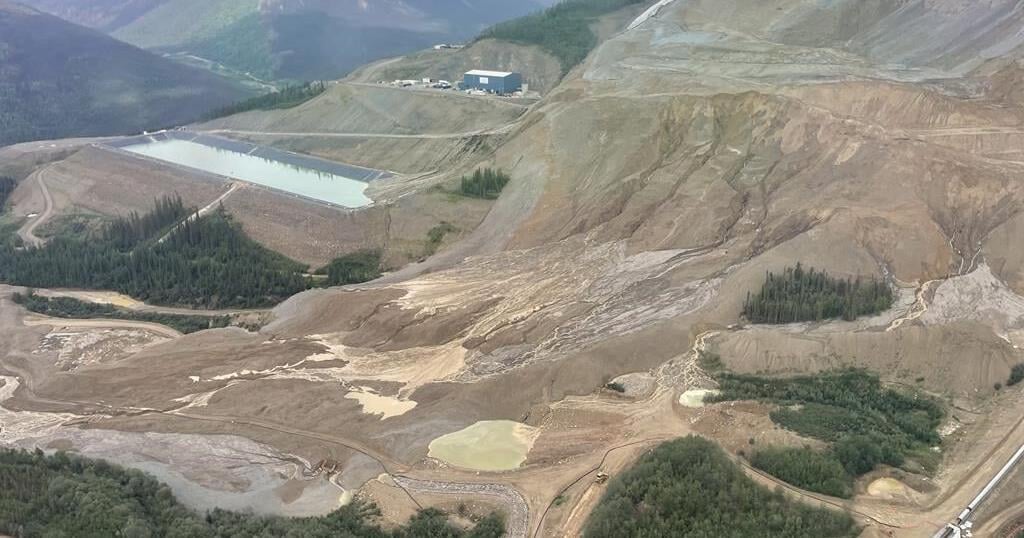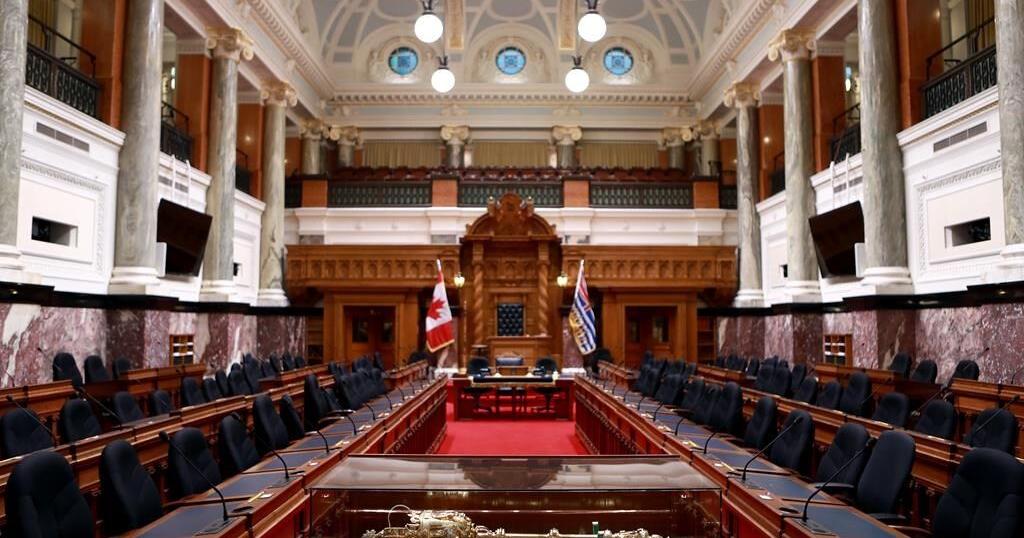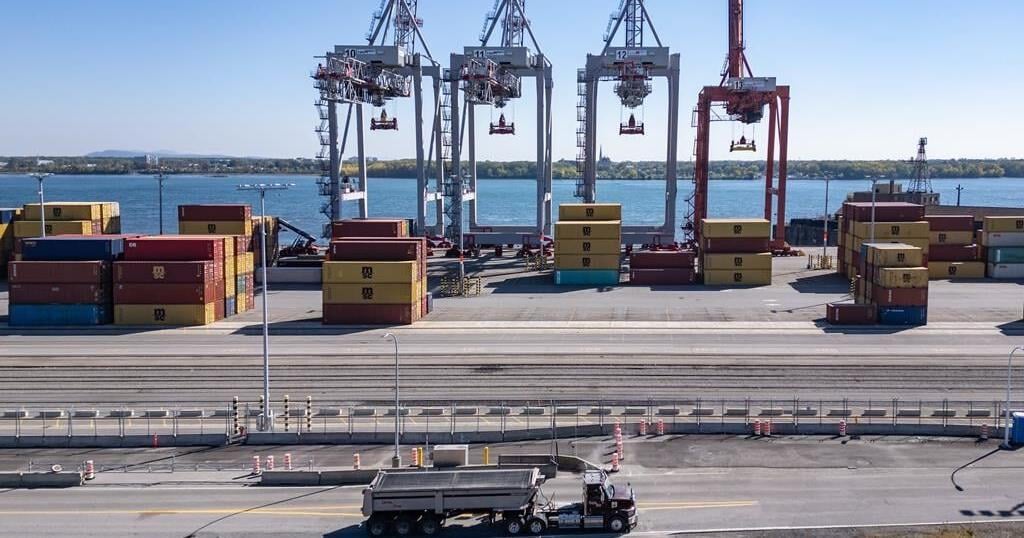WHITEHORSE – Two years before the disastrous ore slide and spill of cyanide solution last month at the Eagle Gold mine in Yukon, the former head of the Yukon Water Board accused the mine’s owner of violating conditions of its water licence.
Roger Lockwood, then director of the Yukon Water Board, told a court that Victoria Gold “flouted” conditions of the licence,increasing environmental riskswhile saving millions by allegedly failing to re-contour slopes at the mine, about 500 kilometres north of Whitehorse.
Lockwood, a former police officer, made the claims in a Yukon Supreme Court case, and estimated the company “saved more than $4 million through non-compliance with the conditions of the water licence,” a Yukon Supreme Court ruling says.
On June 24, Victoria Gold announced a “failure” at the Eagle Gold mine’s heap leach facility, suspending operations as it assessed damage.
The Yukon government has estimated that the ore slide allowed 300 million litres of cyanide solution to escape containment from the heap leach pad at the mine, which uses the chemical to extract gold from ore.
Victoria Gold said last week it was co-operating with technical experts hired by the Yukon Government and the First Nation of Nacho Nyak Dun as they investigate the cause of the disaster.
The company also said it is uncertain if it will ever resume production or if it has the financial resources to repair damage and fix the environmental impact of the slide and chemical escape.
It’s not known whether the contouring work Lockwood referred to had any bearing on the ore slide and solution spill, which the company and the Yukon government have said was followed by a single detection of elevated cyanide levels in a creek downstream from the site.
The company brought the 2022 legal action over millions of dollars that mining companies are required to put up as security for costs associated with closing their mines and reclaiming a site. Victoria Gold sought a stay on the water board’s order that it put up more than $36 million, in addition to more than $68 million that had been required by the Yukon government at the time.
Lockwood had raised his allegation to support the water board’s contention that Victoria Gold would not suffer “irreparable harm” by having to pay the full amount, because of money it saved through alleged non-compliance.
In an affidavit dated August 2022, Lockwood said the company had been in “continuous breach” of requirements for ground re-contouring and snow removal from the heap leach facility and a storage area for waste rock.
“As one of the fundamental purposes behind licence conditions such as re-contouring is to mitigate environmental risks associated with the ongoing mining operation, a proponent’s non-compliance with such conditions results in an increased risk profile, the result of which is that the board will likely require the proponent to post a higher level of security,” Lockwood’s affidavit says.
But the company disputed the notion it had violated its water licence.
An affidavit from Hugh Coyle, a company vice-president, said Yukon mining inspectors had never “made such a finding of such non-compliance in (their) inspection of Eagle Gold mine.”
“Further, contrary to Mr. Lockwood’s suggestions, Victoria Gold’s water licence does not impose any timeline for re-contouring or snow removal” Coyle’s affidavit says.
Ultimately, the judge in the case, Justice Karen Wenckebach, ruled that Lockwood’s evidence was “impermissible opinion,” and “not relevant.”
In September 2022, Wenckebach granted Victoria Gold the stay until a judicial review of the security order was completed.
That review remains unresolved, but earlier this year, the Yukon government increased the security deposit it required from Victoria Gold to $104 million, in line with what the water board previously wanted.
Neither Lockwood nor the board’s lawyer could be reached for comment. The Yukon Water Board declined to comment on the case because it’s still before the courts.
Victoria Gold chief operating officer Mark Ayranto said he had no comment and one of company’s lawyers, Jana McLean, said the company could not comment on a case that’s still before the courts.
Erin Dowd with the Yukon Department of Energy, Mines and Resources, said at a technical briefing last week that the security deposit funds hadn’t been used yet.
In the years leading up to the June 24 failure, the Yukon government had charged Victoria Gold with several offences under the territory’s Waters Act and Quartz Mining Act, including for issues related to its heap leach facility.
In 2022, the Mines Department engaged an engineering firm to conduct a geotechnical review of the facility after “Eagle Gold experienced a variety of issues related to construction, commissioning, and early-stage operations, ranging from relatively minor issues to reportable cyanide spills and inadequate storage capacity in the ponds.”
In a July 2022 memo to Yukon officials about the mine’s cyanide management plans, engineer Mark Smith said there were four reported spills between July 2020 and July 2021, three of which happened in less than four months, including a “relatively large” spill of 30,000 litres.
“The immediate response to each of these was appropriate and effective, and indications are that there were no significant or lasting environmental impacts,” says Smith’s memo, which was included in the published report of the review.
“However, the frequency of spills and the potential to more effectively integrate lessons learned into operations, must be reflected upon. The frequency is high by industry standards, suggesting some other root cause in terms of management systems and, perhaps, internal inspections.”
Smith’s memo said heap leaching was new to Yukon mining, suggesting that a lack of “institutional knowledge” may have been a factor.
“In which case, the solution is timing and training,” Smith wrote. “Regarding lessons learned, there have been some changes implemented in response to these spills, but it is not clear if these have been adequate.”
Smith declined to comment on his memo, deferring questions to the Mines Department.
Victoria Gold said in a statement Friday that its “focus continues to be on the safety of its employees and mitigation of harm to the environment.”
“There can be no assurance that the company will receive authorizations necessary to restart production, or that the company will have the financial resources necessary to repair damage to equipment and facilities or remediate impacts caused by the incident or restart production,” it said.
John Thompson, spokesman for the Yukon Department of Energy, Mines and Resources, said in an email that “concerns raised during the case about the company’s closure plans referred to earlier plans that have since been updated.”
“The current closure plan was approved in 2024 and meets our regulatory requirements,” Thompson said. “It’s too early for us to say what caused the heap leach failure.”
Kayla Brehon, mining co-ordinator with the Yukon Conservation Society, said in an interview Monday that there’s “still a lot up in the air” about what happened at the mine.
She said the society had sought transparency from both industry and government about water testing and monitoring, and calls for changes to mining legislation to better deal with “bad actors” who have a “history of errors.”
“Should they be able to be continuing to a produce? Should there be a pause so they’re able to fix their mistakes versus just paying a fine and continuing the way they’re doing things?” Brehon said. “I think that that’s a really important thing to look at.”
— By Darryl Greer in Vancouver
This report by The Canadian Press was first published July 16, 2024.
























